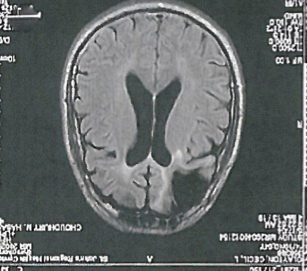This past week’s issue of the St. Louis Review, the newspaper for the Archdiocese of St. Louis, included an editorial, “Abolish Killing,” which highlighted how the Missouri Catholic Conference opposes the death penalty. The editorial offers a number of reasons why, which have also been stated in a number of places recently, including at the Catholic Moral Theology website.
Also here in Missouri, Cecil Clayton (74) faces execution on Tuesday, March 17. In 1996 Clayton killed Deputy Christopher Castetter by shooting him in the head. According to Clayton’s lawyers, six psychiatric evaluations call into question whether he should be regarded as mentally competent enough to be executed by the state. Not only does Clayton have dementia and a low I.Q. of 71, but in 1972 he suffered a serious head trauma when a piece of lumber flew off a circular saw blade, struck him in the forehead, and required the removal of a significant portion of the frontal lobe of his brain. A number of studies, as shared in Adrian Raine’s The Anatomy of Violence: The Biological Roots of Crime, find correlations between brain injury and violent crime. This raises the question about the perpetrator’s culpability.
Having experienced a serious head trauma myself two-and-a-half years ago (thankfully, not as serious as Clayton’s, though I fractured my skull from the left parietal through the sagittal suture and onto the right parietal bone, with a subarachnoid hemorrhage and a small epidural hematoma under my left frontal region) I can relate a bit to how it can impact one’s emotions as well as impair one’s cognitive abilities. A few years after his injury occurred, Clayton apparently recognized his problem, checking himself in at a mental hospital. After being released from there, he got a job as a police officer in Purdy, Missouri, but resigned after only nine months. A few years later, in 1983, psychiatrist Douglas Stevens, wrote the following about Clayton: “There is presently no way that this man could be expected to function in the world of work. Were he pushed to do so he would become a danger both to himself and to others. He has had both suicidal and homicidal impulses, so far controlled, though under pressure they would be expected to exacerbate.” It seems that Clayton couldn’t help how he felt, thought, and acted. The “perfect storm” of triggers might push him over the edge. As Raine notes, cases like this force us to think harder about free will and moral agency. I think that if there are serious doubts about Clayton’s mental state–and I believe there should be–the state of Missouri should not execute him. He should have had a hearing about his brain injury and mental competence, but he has never had one.
At the same time, as I have written here and elsewhere numerous times, I do not believe that the death penalty is morally justified–unless executing someone is “the only possible way of effectively defending human lives against the unjust aggressor” (Catechism of the Catholic Church, par. 2267). Even if it were certain that Clayton is mentally sound and therefore morally responsible, I do not consider his execution as absolutely necessary for the protection of myself, my family, my fellow Missourians, the officers and staff at the prison, or his fellow prisoners. Keeping him in prison the last couple of decades has protected us all well enough. Nor does the death penalty make up for the horrible murder of Deputy Castetter. As a former detention deputy (and reserve police officer), I remember the dangers from that line of work, and I recall the sadness I felt when a fellow law enforcement officer was killed while on duty.
Nevertheless, I do not think that Clayton’s execution should be carried out, and I hope that he is granted a reprieve. If anything, executing him, given his brain injury and mental condition, seems less an act of capital punishment and more akin to involuntary active euthanasia, which in the Catholic moral tradition is a grave moral evil and never morally justified, and which is illegal in all 50 US states, including the handful where physician-assisted suicide is legal.
UPDATE (March 18, 2015): Cecil Clayton was executed by lethal injection at 9:13 PM and pronounced dead at 9:21 PM on March 17, 2015.





